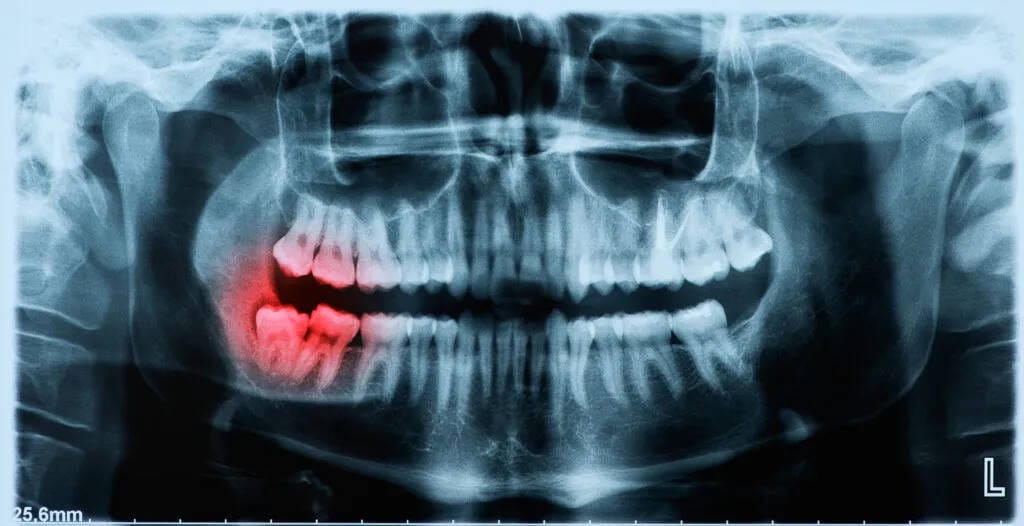We provide a relaxing atmosphere for children at our Downtown Kitchener Dental Clinic. We like to work with children and their parents to minimize the need for interventive dental treatments. The parents we see are wonderful and care greatly about the well being of their children.
Below, are parents’ most commonly asked questions about Children’s Dentistry including our answers to them:

To book an appointment for your little gem, call our Kitchener Dental Office at (519)-576-8160 Or Schedule Your Appointment Online.
Occasionally, we have a parent who asks us if repairing cavities in "baby teeth" is important or necessary. "They're going to fall out anyway..." is what they'll typically say. It's our job to help parents to understand the importance of Dentistry and Oral Health even in children.
Teeth support the soft tissues of the face like the lips and cheeks. Teeth contribute to our face shape. They help us to eat and maintain proper nutrition and they help us to make a variety of sounds when we speak with family and friends. Teeth help us to do a lot of things that contribute to our self-image and build self-esteem.
When children have cavities and lack adequate oral health, they may have to struggle through pain. It can affect their ability to eat and speak comfortably.
On a very basic level, it's important to understand that cavities can grow deep into the nerve of a tooth. From there, bacteria within the cavity can quickly access the supporting jaw bone causing a dental infection or abscess. These infections can cause swelling and severe pain. In some cases, abscesses can spread to other areas in the body and prove fatal.
For these reasons, and many others, Pediatric Dental care is critically important. Early childhood dental care (even just regular cleanings and checkups) also increases the likelihood that a child will grow into an adult that maintains good oral health habits and regularly visits his/her Kitchener-Waterloo Dentist.
Many will disagree with me but the vast majority of children and teenagers do not “need” braces. Don’t get me wrong, in some cases orthodontic alignment can effectively treat speech impediments, correct crowding and improve tooth cleansability, and even improve gum-related problems like deep pocketing and recession in certain cases. So, there is certainly value to orthodontic alignment. However, we have to be clear about benefits when we discuss this topic together.

I often ask parents if their child has any concerns that they vocalize regarding the alignment or “straightness” of their teeth. I ask the child or teenager as well. Sometimes, they have seen a Pediatric Dentist in Kitchener previously, where a recommendation for Orthodontics was made.
In most cases of mild misalignment, both parent and child are happy and comfortable and it is not my job to disrupt that level of comfort. Some parents request orthodontic consults based on minor misalignments or crowding and I often advise them that, in the case of their child, nature has given them pretty straight teeth. I also find it to provide perspective by giving a percentile ranking to the straightness of their child’s teeth. For most concerned parents, my telling them that their child “is around the 85th percentile for tooth straightness” diminishes their interest in orthodontic treatment.
I will always happily review costs and benefits of orthodontic treatment. However, I am very conservative in recommending orthodontic treatment and do so only in cases where benefits will far outweigh risks and complications.
It is important to keep in mind that there are challenges and potential risks to orthodontic treatment that any Orthodontist or Pediatric Dentist will openly share. These include:
Pediatric Dentistry in Kitchener - FAQs:
Why is my child getting cavities?
Parents commonly ask their Family or Pediatric Dentist in Kitchener this question. Children and teens develop “cavities” or tooth decay for a number of reasons. With a few questions and a little bit of information supplied by Mom or Dad, I can often determine causes contributing to repeated instances of tooth decay. Common causes for tooth decay and related solutions are:

“Soft” or demineralized enamel. Tooth “hardness” varies greatly between people. Some patients have very hard, resistant enamel and dentin. Some patients have very soft, susceptible enamel and dentin. Many patients are in between. Empirically, we see evidence of this disparity in tooth hardness all the time. At our office, we occasionally see individuals who have not seen a dentist for 10-plus years, brush their teeth infrequently, and never floss. Some of these individuals present to us without a single cavity or decay site. Other times, you see regular patients, who brush and floss vigilantly and they develop tooth decay frequently. Now, there are many other factors that contribute to tooth decay including tooth position, diet, systemic health, saliva content however, there exists a noticeable difference in tooth hardness between individuals in the general population. I can also feel this when I am restoring a broken or decayed tooth.
Are my child's cavities due to something they are eating or drinking?
Consumption of pop/soda, energy drinks or excessive amounts of juice. This is a common contributing factor in development of tooth decay in children and teens. The combination of high concentration sugar/carbohydrate and acidity inherent to these beverages has a very destructive effect on teeth. The best solution is discontinuing consumption of pop and energy drinks and/or decreasing consumption of juices (which might provide some nutritional value by supplying vitamins and minerals). In some cases, we recommend the use of a high-fluoride toothpaste temporarily to increase the acid-resistance of already weakened enamel.
How can I prevent cavities?
I often coach individuals with a history of decay in spite of good habits and a good diet to:
Boost your homecare routine. Increase brushing and flossing frequency. For high decay-risk patients, brushing 3-4 times and flossing 2-3 times daily will provide a MASSIVE benefit.
Use a high fluoride toothpaste intermittently. These are non-prescription products readily available at most pharmacies. The higher fluoride content increases the acid-resistance of your teeth over time. You should ask your Dentist for his/her recommendation prior to initiating use of these toothpastes.
Increase vigilance! You can do this by increasing the frequency of your cleanings and checkups. 6-month intervals are typically most common but some individuals can benefit greatly from having their teeth cleaned and checked slightly more often. 3-month and 4-month intervals allow an extra 1-2 checkups per year and increase the chance of catching decay lesions early while they are still small and easily treatable.
Is my teenager going to need their wisdom teeth removed?

At Enamel Republic Family Dental Clinic, we typically start to monitor development of 3rd molars or wisdom teeth using panoramic images around 12-14 years of age. Panoramic images help us to ascertain the presence or absence of developing wisdom teeth, the size of the teeth, the orientation of the teeth, and the amount of horizontal jaw space present to accommodate their eruption. If one or more wisdom teeth are not erupting vertically or if there is insufficient space for their eruption, one or more impactions are likely to develop. There are numerous risks and complications associated with impacted wisdom teeth. These include:
We recommend prophylactic removal of wisdom teeth only where these teeth pose a high risk of future risk/complication. The removal of wisdom teeth is typically of least risk and easiest to perform between the ages of 12 and 18 years of age. The ideal period for removal depends on the individual and their development. If removal is delayed, the roots continue to develop and elongate and, in some cases, become curved – this greatly increases potential complications related to tooth removal. Additionally, the teeth may assume a more horizontal position over time and this also increases difficulty related to their removal.
If you have further questions related to the surgical removal of impacted wisdom teeth at our clinic, please refer to our section on “Tooth Extraction & Wisdom Tooth Removal”.
We recommend to consult your Kitchener Dentist regarding the risks and benefits associated with wisdom tooth removal.
Schedule an Appointment Now
Service
Routine Dentistry & Tooth Repair
Oral Surgery & Tooth Removal
Prosthetic Dentistry & Tooth Replacement
Protective/Preventive Services
Teeth Whitening

OFFICE HOURS